New South Wales-headquartered transport energy provider Ampol has received a $100 million (USD 65.1 million) Clean Energy Finance Corporation (CEFC) investment.
The funds are to help decarbonise the transport sector through electric vehicle (EV) charging stations, rooftop solar installations, green hydrogen refuelling and the development of alternative energy sources such as biofuels and sustainable aviation fuel (SAF).
Ampol has already begun a rollout of 110 EV charging stations at 19 existing service stations on key commuter routes that include 300 kW fast charging units.
The company also announced a memorandum of understanding (MoU) with global firm International Financial Management (IFM) Investors and Australian agribusiness giant Graincorp, to establish an integrated renewable fuels industry in Australia.
The agreement kicks off a feasibility study of a SAF and renewable diesel facility at Ampol’s Lytton Refinery in Brisbane and to explore with Graincorp the supply of feedstocks to the future plant.
CEFC Executive Director Alternative Fuels Rupert Maloney said CEFC capital is important to help overcome challenges in sectors like transport that are proving difficult to abate.
“We are pleased to provide the flexible finance that will enable Ampol to make the longer-term investment decisions to progress its future energy and decarbonisation strategies,” Maloney said.
“By developing solutions to help its customers drive down emissions, Ampol is stepping up to the challenge of decarbonising the Australian transport sector and helping drive down national emissions.”
Citing the quarterly update of Australia’s National Greenhouse Gas Inventory: December 2023, CEFC says the transport sector is responsible for 23% of national emissions, which the federal government has forecast will be the largest source of emissions by 2030, without further action.
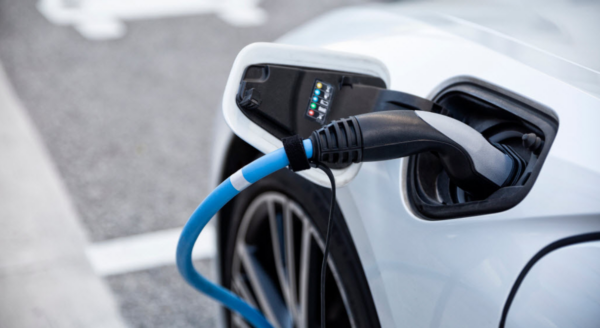
Image: Ampol
Ampol Chief Executive Officer and Managing Director Matt Halliday said Ampol is proud to be working with the CEFC to deliver solutions that will support the energy transition of customers.
“We are committed to working with the government, our partners and customers to invest in solutions for the energy transition that lies ahead for us all,” Halliday said.
CEFC Chief Executive Officer Ian Learmonth said established industry players, like Ampol, have a significant role to play in the transition to cleaner alternative fuels.
“After more than a century moving motorists and goods around the country, Ampol is well positioned to help Australia forge a new transport network powered by renewable energy and fit for the future,” Learmonth said.
“By harnessing Ampol’s extensive critical infrastructure, including service stations, liquid fuel storage and distribution, as well as its supply chain connections to the marine, agriculture, mining and aviation sectors, this investment will demonstrate how fuel companies can be a part of the solution to the transport emissions challenge.”
The number of EVs in Australia more than doubled in 2023 year-on-year and made up about 8% of new car sales in May 2024, with more than 180,000 EVs now in service and 900 fast and ultra-fast public EV charging stations with 2,000 charging plugs available.
This content is protected by copyright and may not be reused. If you want to cooperate with us and would like to reuse some of our content, please contact: editors@pv-magazine.com.
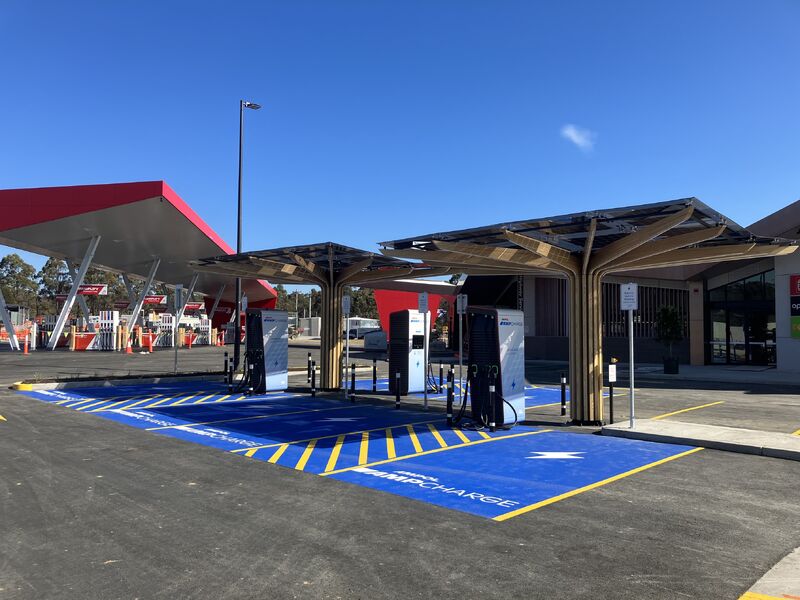


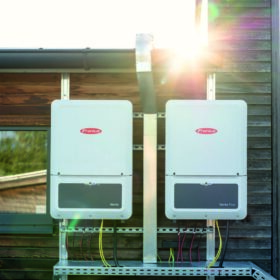

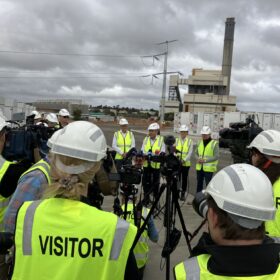
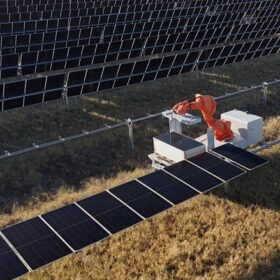

By submitting this form you agree to pv magazine using your data for the purposes of publishing your comment.
Your personal data will only be disclosed or otherwise transmitted to third parties for the purposes of spam filtering or if this is necessary for technical maintenance of the website. Any other transfer to third parties will not take place unless this is justified on the basis of applicable data protection regulations or if pv magazine is legally obliged to do so.
You may revoke this consent at any time with effect for the future, in which case your personal data will be deleted immediately. Otherwise, your data will be deleted if pv magazine has processed your request or the purpose of data storage is fulfilled.
Further information on data privacy can be found in our Data Protection Policy.